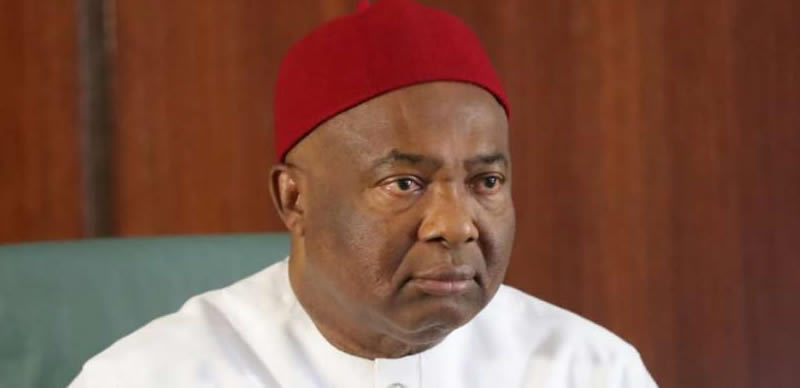The All Progressives Congress (APC) in Enugu State is grappling with a debilitating internal crisis that threatens to derail its performance in the 2027 general elections. This discord, stemming from leadership disputes and perceived marginalization of certain party stalwarts, has sparked concerns among prominent members who fear the party’s electoral prospects are in jeopardy. Chief J.O.J. Okoloagu, a member of the APC Board of Trustees in Enugu State, has voiced his apprehension, warning that unless the internal wrangling is addressed, the party risks a dismal showing in the upcoming elections. He has pointed fingers at the current state leadership, claiming it is dominated by individuals who were not part of the party’s foundation and who have sidelined those who were instrumental in its establishment.
Okoloagu’s critique centers on the role of individuals like the Minister of Science and Technology, Mr. Uche Nnaji, and Imo State Governor, Hope Uzodimma, whom he accuses of supporting the current state APC Chairman, Chief Ugochukwu Agballah. Okoloagu contends that Agballah was not an original member of the party and has been instrumental in sidelining founding members. He further points to the perceived marginalization of Enugu North Senatorial Zone, a region he considers crucial to the APC’s electoral success in the state. Despite the zone’s significant contributions to the party’s performance, Okoloagu argues that its members have been overlooked for key appointments, a situation he believes could alienate the zone and negatively impact the party’s future performance.
The crux of Okoloagu’s argument revolves around the perceived injustice of having individuals who were not part of the APC’s formative stages now holding key leadership positions. He contrasts this with the alleged sidelining of founding members, creating a sense of disenfranchisement and resentment. He questions the legitimacy of the current leadership and calls for a restructuring, suggesting a caretaker arrangement as a possible solution. This, he believes, would pave the way for a more inclusive and representative leadership that can effectively address the concerns of all stakeholders and prepare the party for the 2027 elections.
Adding to the chorus of dissent is former Speaker of the Enugu State House of Assembly, Mr. Eugene Odo, who echoes Okoloagu’s concerns regarding the distribution of appointments. Odo criticizes the perceived marginalization of Enugu North, emphasizing the loyalty and commitment of the zone’s members to the APC. He argues that despite their unwavering support, they have been unfairly overlooked for significant positions. Odo’s remarks underscore the growing discontent within the party and the potential consequences of neglecting a key constituency like Enugu North.
The situation in Enugu State APC highlights the complexities of internal party dynamics and the challenges of balancing power and representation. The concerns raised by Okoloagu and Odo underscore the importance of inclusivity and recognition of contributions in maintaining party unity and achieving electoral success. The perceived marginalization of key stakeholders, coupled with leadership disputes, can create factions and undermine the party’s ability to mobilize support and effectively compete in elections.
Looking ahead, the APC in Enugu State faces a critical juncture. The internal crisis, if left unaddressed, could severely damage the party’s chances in the 2027 elections. The concerns raised by key figures like Okoloagu and Odo highlight the urgent need for reconciliation and a more inclusive approach to leadership and representation within the party. Failure to address these issues could lead to further fragmentation and a weakening of the party’s base, ultimately jeopardizing its future electoral prospects. The onus is on the party leadership to address these concerns and forge a path towards unity and a more cohesive strategy for the future.














